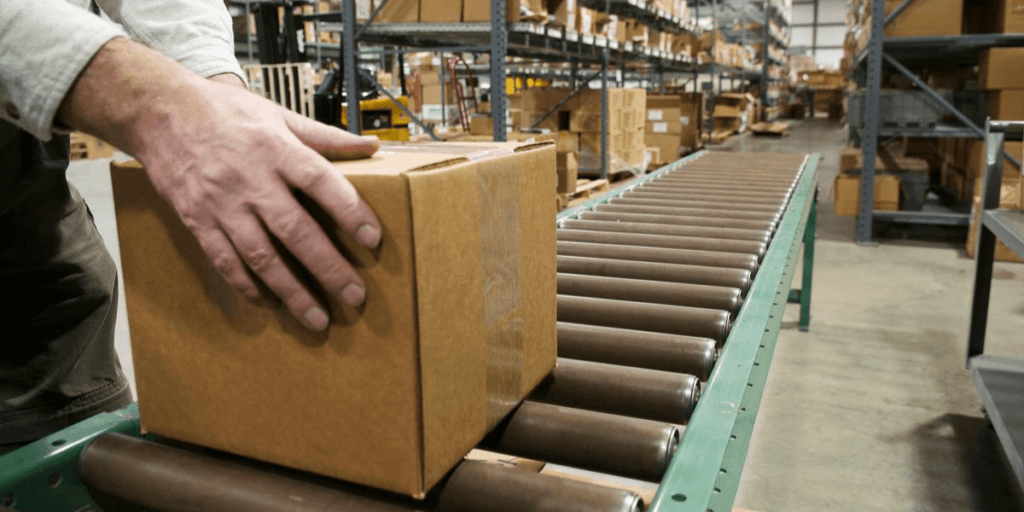Bringing a new product idea to life is a challenging and exciting process that requires careful planning and execution. One of the most important steps in this process is how to find manufacturers that can help you bring your product idea to life.
Finding the right manufacturer is crucial to the success of your product, as it can impact the quality of the product, delivery time, cost, and customer satisfaction.
In this article, we will explore the different types of manufacturers and the benefits of working with them. We will also discuss the key factors to consider when selecting a manufacturer, including the differences between domestic and overseas manufacturers. Whether you’re launching a new product or looking to switch manufacturers, this article will provide you with the information you need to make an informed decision.
Table of Contents
Domestic vs. overseas manufacturer
When it comes to selecting a manufacturer, a crucial decision that needs to be made is whether to work with a domestic or overseas manufacturer. Both options come with their own set of advantages and disadvantages, and the right choice depends on the specific needs and requirements of your business.
Domestic manufacturers offer improved communication, ease of visiting the manufacturer, shorter lead times, and lower transportation costs. However, these manufacturers often have higher production costs and may have limited capacity.
On the other hand, overseas manufacturers offer lower costs, access to new markets, and improved competitiveness. But, working with overseas manufacturers can also lead to communication challenges, higher shipping costs, and quality control issues.
So, the choice between a domestic or overseas manufacturer should be based on a thorough evaluation of your business needs. The benefits and drawbacks of both options should be weighed carefully to ensure that the best decision is made for your business.

Types of Manufacturers
When searching for a manufacturer for your product, it’s important to understand the different types of manufacturers available. The most common types of manufacturers include:
- Original Equipment Manufacturers (OEMs): These manufacturers produce products for other companies, which will then sell the products under their own brand name. OEMs typically focus on large-scale production and have extensive experience in a particular product category.
- Contract Manufacturers: Contract manufacturers are similar to OEMs, but they offer a wider range of services, including design, prototyping, and testing. These manufacturers are often used when a company needs to outsource the production of a product but still wants to retain control over the design and development process.
- Private Label Manufacturers: Private label manufacturers produce products for companies to sell under their own brand name. These manufacturers often have experience in producing a wide range of products and can provide branding and packaging services in addition to production.
- Custom Manufacturers: Custom manufacturers produce products based on the specifications provided by a customer. These manufacturers are often used when a company requires a unique product that cannot be found on the market.
- Job Shops: Job shops are manufacturers that offer production services on a project-by-project basis. These manufacturers are often used for short-run production or for specialized products that require a high degree of customization.
Each type of manufacturer has its own strengths and weaknesses, so it’s important to carefully consider your needs and requirements when choosing a manufacturer.
Benefits of Working With a Manufacturer
Working with a manufacturer can offer numerous benefits to entrepreneurs and businesses. Some of the key advantages include:
- Cost savings: By outsourcing production to a manufacturer, you can benefit from economies of scale and potentially reduce costs compared to producing the product in-house.
- Expertise: Manufacturers have experience and expertise in the production process that you may not have, ensuring that your product is made to the highest quality standards.
- Access to technology: Manufacturers often invest in the latest technology and machinery to improve their production processes. This can be particularly useful if your product requires specialized equipment or technology that you don’t have access to.
- Improved efficiency: Working with a manufacturer can help streamline the production process and improve efficiency, as they often have established systems and processes in place to manage production.
- Scalability: As your business grows, a manufacturer can scale production to meet increased demand, without requiring you to invest in additional equipment or staff.
- Increased flexibility: Working with a manufacturer can provide you with more flexibility in terms of production schedules and the ability to quickly adapt to changes in demand.
- Reduced risk: By outsourcing production to a manufacturer, you can reduce the risk associated with investing in equipment, staffing, and other resources needed to produce your product in-house.
In summary, working with a manufacturer can help you save costs, improve efficiency, and reduce risk, allowing you to focus on other aspects of your business.
How to Find The Right Manufacturer for Your Product Idea?
Here are a few tips to help you find the right manufacturer for your product idea:

Step 1: Define Your Product Requirements
Before you start searching for manufacturers, it’s important to have a clear understanding of your product requirements. This includes the materials you need, the specifications for the product, and the quantities you need to be produced.
Having a clear understanding of your requirements will make it easier for you to communicate with potential manufacturers and ensure that you are comparing apples to apples when evaluating quotes.
Step 2: Research Potential Manufacturers
Once you have a clear understanding of your product requirements, it’s time to start researching potential manufacturers. There are several ways to research potential manufacturers, including:
- Online directories: Directories like ThomasNet and Alibaba allow you to search for manufacturers based on your specific product requirements, including location, capacity, and materials.
- Trade shows and exhibitions: Attending trade shows and exhibitions can be a great way to meet with manufacturers in person and get a feel for their capabilities and level of customer service.
- Referrals from others in your industry: Ask for recommendations from others in your industry, especially if they have experience working with manufacturers.
Step 3: Evaluate the Manufacturers
Once you have a list of potential manufacturers, it’s time to start evaluating them. Consider the following factors when making your decision:
- Quality of their products and processes: You can request samples or visit their facilities in person to evaluate the quality of their products and processes.
- Lead times and delivery reliability: You can evaluate lead times and delivery reliability through references from previous customers or by reviewing their track records.
- Price and payment terms: Consider not just the bottom line, but also the long-term financial impact of the price and payment terms.
- Communication and customer service: Good communication and customer service are key to a successful partnership, so be sure to ask questions and gauge their responsiveness.
- Ability to handle your volume and growth: Consider their ability to handle your volume and growth over time.
- Location and logistical considerations: Location and logistics can play a significant role in the success of your partnership, so be sure to consider these factors when evaluating potential manufacturers.
Step 4: Negotiate and Finalize the Agreement
Once you have found the manufacturer that meets your needs, it’s time to negotiate and finalize the agreement. Be sure to discuss all of the details, including the payment terms, lead times, and quality expectations. It’s also important to have a clear understanding of what happens in the event of a dispute. Finally, make sure that all of the details are documented in a clear and concise contract.
Step 5: Monitor the Partnership
The final step in finding the right manufacturer for your product idea is to monitor the partnership. Regular communication, quality control, and performance evaluation can help ensure that the partnership remains strong and productive.
By taking the time to monitor the partnership, you can catch potential issues before they become major problems and ensure that your product is produced to your exact specifications.
How To Find Manufacturers FAQs.
Is a manufacturer a supplier?
A manufacturer can be a supplier, but not all suppliers are manufacturers. A supplier is any company or individual that provides goods or services to another company.
On the other hand, a manufacturer is a company that produces goods through various processes such as assembly, formulation, or fabrication.
So, a manufacturer can also act as a supplier by supplying its own products to other businesses or individuals. But, not all suppliers are manufacturers as they may be sourcing goods from other manufacturers to sell to their customers.
The bottom line
Choosing the right manufacturer is an essential step in bringing your product idea to life. It is crucial to evaluate your business needs and choose a manufacturer that can meet those needs while providing the best quality, delivery time, and cost. The type of manufacturer you choose, whether domestic or overseas, will depend on your specific requirements, and it’s important to weigh the benefits and drawbacks of each option.
In conclusion, working with a manufacturer can be a rewarding and beneficial experience for your business. With the right approach and attention to detail, you can find a manufacturer that can help you bring your product idea to life and take your business to the next level.







